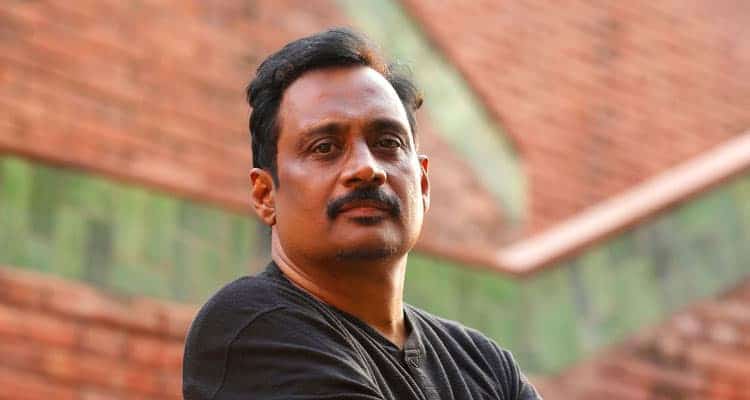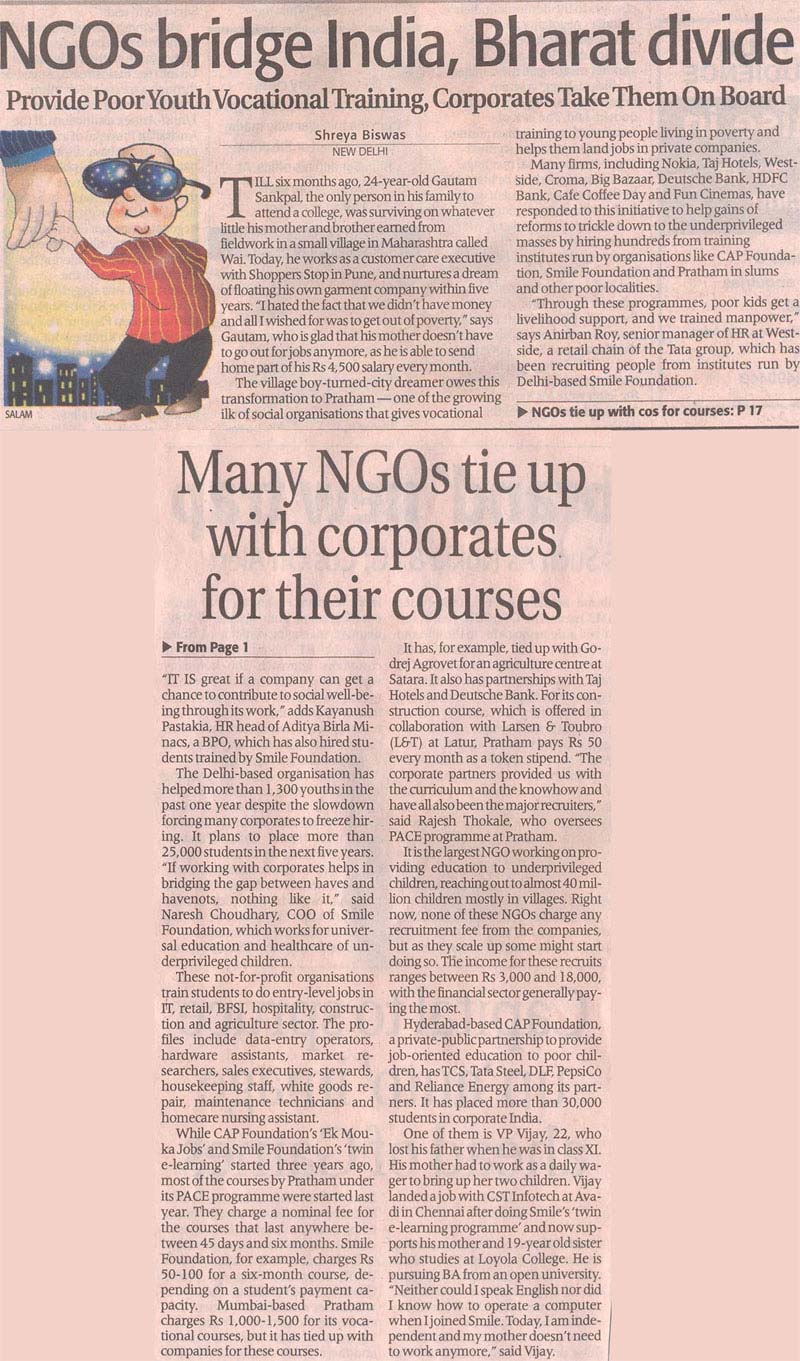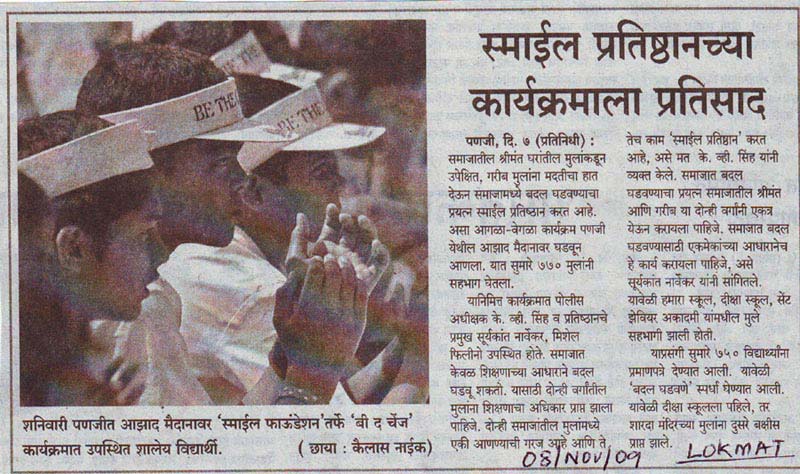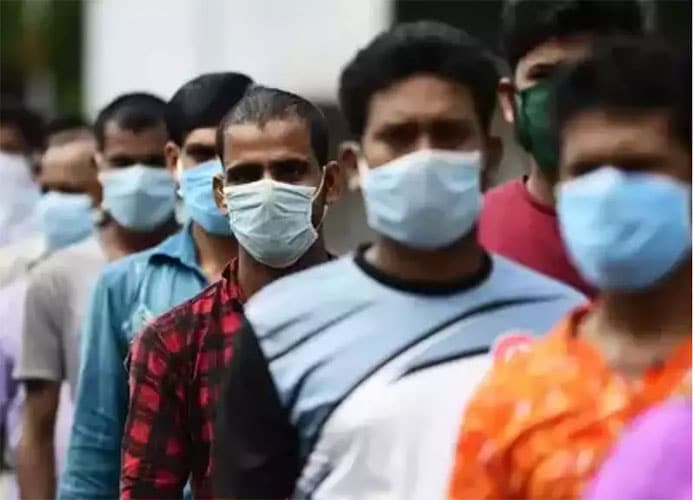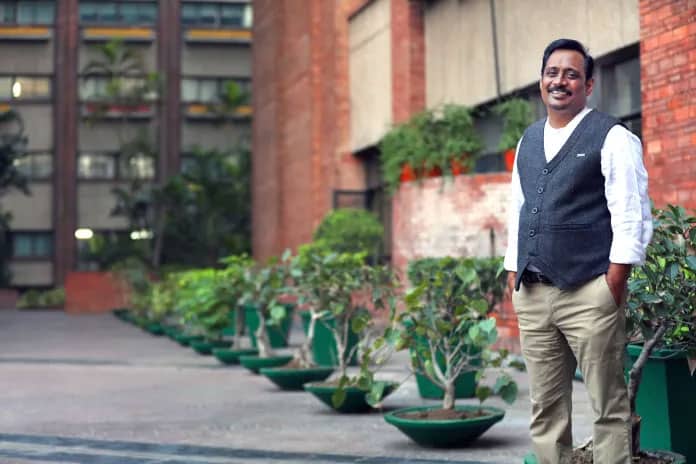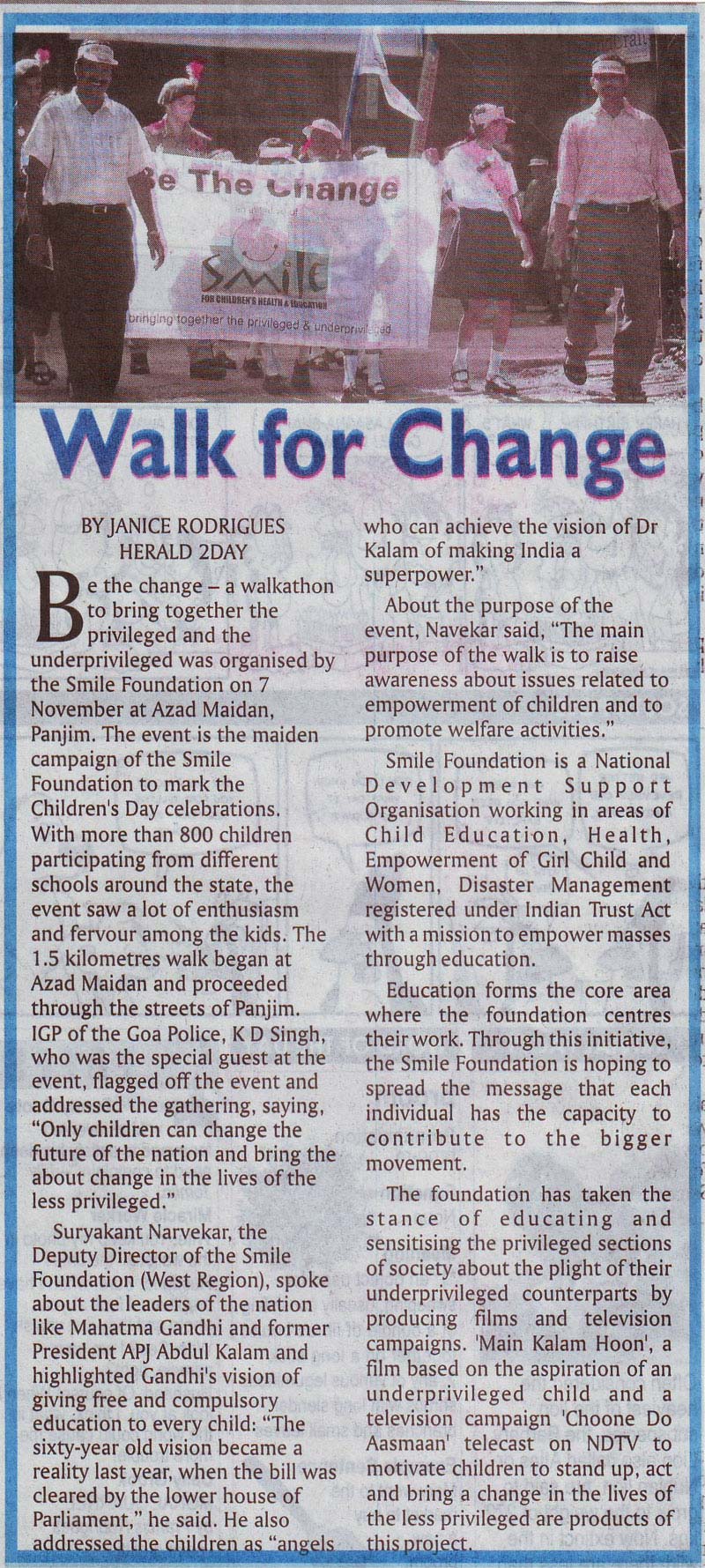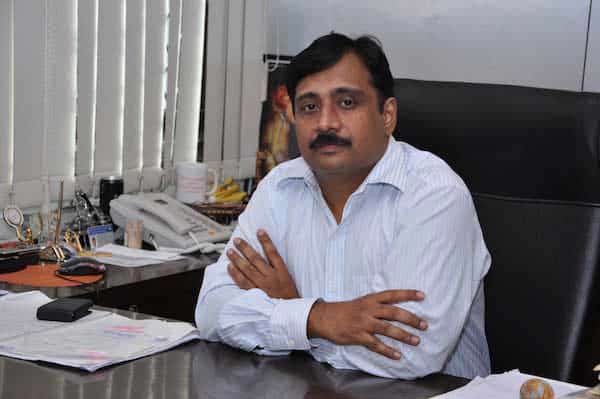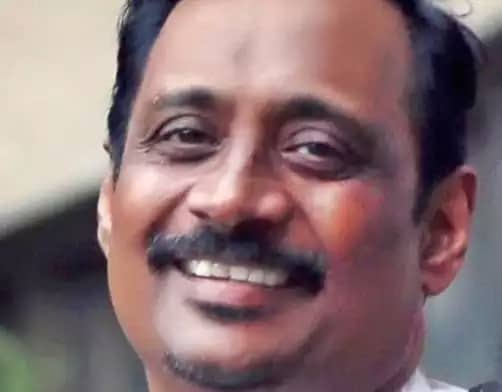Access to nutrition can fuel India’s demographic dividend
- Home
- Smile Team
- Page 157
(September 6, 2021)
Santanu Mishra, Co-Founder and Executive Trustee, Smile Foundation talks about importance of greater accessibility of nutrition in India
Nutrition is foundational to human development. Wholesome nutrition is at the core of human existence and access to food and nutrition are fundamentals to lead a life with dignity. The National Nutrition Week, observed every year from September 1 to 7, is a reminder to all of us to do more to ensure access to nutrition for all, particularly for people in the marginalized sections of society.
The theme of National Nutrition Week 2021-feeding smart right from start focuses our attention on the need for educating children and their parents about correct eating practices and about the importance of nutritious food.
Over the past few years, the government of India has introduced several programs to improve availability of nutrition among children and young adults. Initiatives like Integrated Child Development Scheme, Mid-day meal programme, Special Nutrition Programme, Applied Nutrition Programme, and Balwadi Nutrition Programme are making a marked difference. The POSHAN Abhiyaan, India’s flagship scheme to improve nutritional outcomes for children, adolescents, pregnant women, and lactating mothers, has used technology to drive nutrition among the country’s population across states. India’s robust health stack has helped the country implement and monitor the success of its nutrition programs effectively. Technology has and will continue to underpin our efforts to achieve impact at scale. Rapid technological innovation remains India’s edge in driving developmental impact.
Our country has had a history of stakeholders collaborating and working closely to drive positive outcomes in nutrition for all. Our country’s civil society organisations have played a stellar role in designing and implementing high-impact programs to improve nutrition of people at the grassroots.
With their strong on-ground connect, reach, and understanding of the peculiarities of the Indian landscape, non-government organizations have been able to ensure positive outcomes at scale.
A case in point is Project Sampoorna by Smile Foundation. Intensive interventions through project ‘Sampoorna’ in Banaskantha district of Gujarat brought about a remarkable change in the health outcomes of adolescent girls. The project was supported by PepsiCo Foundation. The ground-breaking comprehensive nutrition enhancement programme for 1,000 adolescent girls from 10 villages in Block Amirgarh, District Banaskantha, Gujarat, increased consumption of IFA, de-worming and multi-vitamin tablets, substantially increased Hemoglobin levels in adolescent girls and created positive outcomes in their Body Mass Index (BMI).
Thanks to the intervention made under this project, the incidence of severe to moderate anemia fell from nearly 78 per cent to around 34 per cent. There was a considerable turnaround in the consumption of multi-vitamins and Iron and folic acid supplements as well. While the consumption of IFA tablets went up from 14.3 per cent to 47.9 per cent, consumption of multi-vitamins increased from 15.10 per cent to 44.4 per cent and consumption of de-worming tablets increased from 6.35 per cent to 7.24 per cent.
There was a remarkable improvement in the BMIs of the adolescent girls as well. The percentage of underweight girls decreased from 70.2 per cent to 13.8 per cent and those with normal weight increased from 29.5 to 86.1 per cent. This success can and should be replicated across the country. With greater support from corporate India, NGOs can design targeted interventions that can be implemented, monitored, and assessed for impact on a large scale. In fact, India needs such interventions on a population scale so we can make progress on nutrition with great speed.
India ranked 94 among 107 nations in the Global Hunger Index 2020 and is in the ‘serious’ hunger category. In 2019, India’s rank on the hunger index was 102 among 117 countries. So yes, we do have a long way to go on parameters like implementation, monitoring and nutrition assessment. But there is also good news. According to Global Nutrition Report, India has progressed towards achieving the exclusive breastfeeding target, with 58 per cent of infants aged 0 to 5 months exclusively breastfed. India is also ‘on course’ to meet the target for stunting.
There is still a case to be made for increased support to the non-profit sector from corporate India and the government. The pandemic has impacted all spheres of life, including nutrition. It is time all stakeholders came together and supported each other to design, implement and fund programs that ensure improved access to nutrition for a large section of our population. We must work closer-than-ever to solve this problem with urgency, so that India can truly realize its demographic dividend. Access to nutritious food, alongside health and education, is an area that is fundamental or core to human development. Progress made here would enable India to dramatically improve human development and meet its sustainable development goals too.



